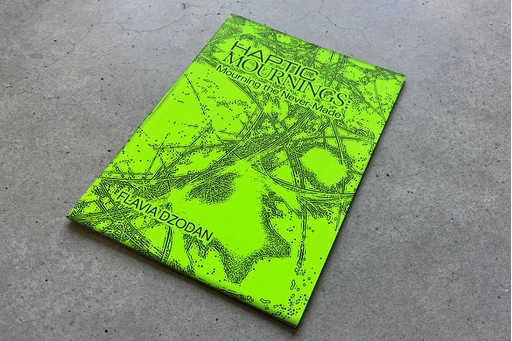Join us on Tuesday, September 30, for the closing of the Loom residency—a collective listening route, a shared experience, and a moment to gather. You can register here.
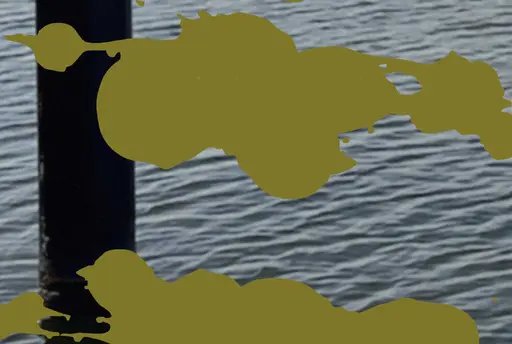
What becomes of water when we look at it through the lens of different artists and researchers? And how might it assist us in looking at the world differently? Seven practitioners individually welcome us to a water-related place in Amsterdam, and explain what this place tells us about water when we listen, look, and think carefully. Each interview is preceded by a listening exercise, guided by the voice of the interviewee; intimately connected to their chosen location. These recordings can be experienced onsite, or wherever you find yourself, with a moment to spare.
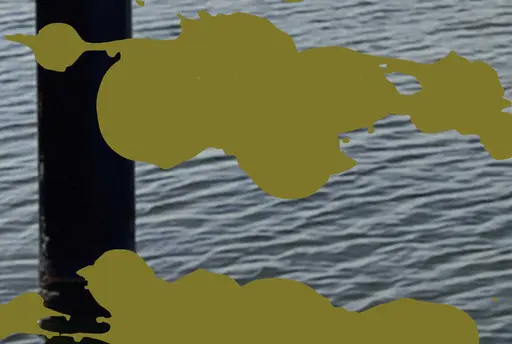
On 15 and 16 October, The Social Hub Amsterdam City will host the fourth edition of the Society 5.0 Festival, with the theme 'The hybrid reality'. Through workshops, lectures and performances, the festival will explore a world where the boundaries between online and offline, and between real and artificial, become blurred. How does that affect our relationships, our mental health and our reality, shared or otherwise? And how do we want to shape that world? For these questions festival organiser Centre of Expertise Creative Innovation (CoE CI) invited internationally leading thinkers and artists.
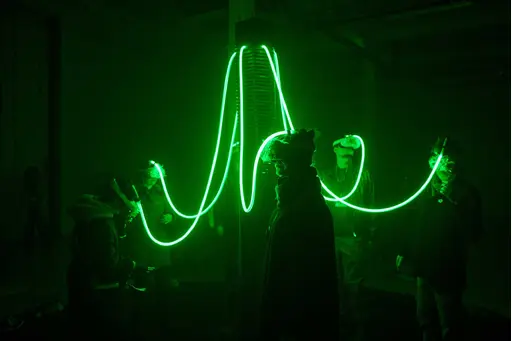
Rietveld Sandberg Research is delighted to share that a consortium led by Anja Groten, Head of Sandberg Design has been awarded funding by the Taskforce for Applied Research SIA (part of NWO) under the Artistiek en Ontwerpend Onderzoek 2025 scheme. “Connecting Otherwise: Developing artistic/design research methodologies and workshop formats for regenerative digital practices” will run from September 2025 to August 2027 with a subsidy of € 125,000 supporting the development of interdisciplinary workshop formats exploring regenerative aesthetics and the materiality of digital technologies through hands-on and collective research approaches.
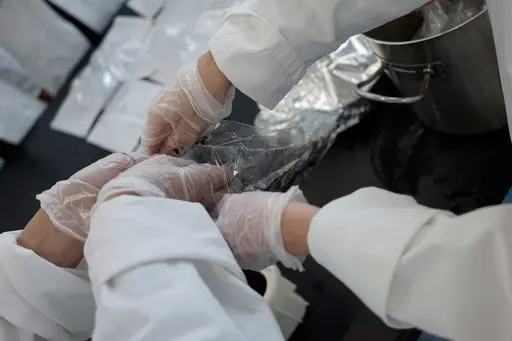
The latest issue of the Boekman magazine explores the theme of ‘Culture as a problem solver’ and examines the role of art and culture in solving social issues. Laura Cull Ó Maoilearca, Sabine Niederer, and Patricia de Vries wrote about the Climate Imaginaries at Sea project in the article ‘Klimaatverbeelding als artistieke praktijk - een ander perspectief op klimaatverandering’.
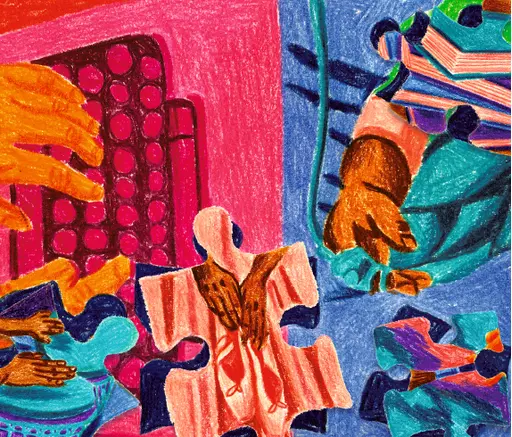
Our colleagues at ARIAS are producing a four-part podcast series [un]learning scripts. What does it mean to [un]learn scripts? Different guests answer this question by bringing forward their practices and ways of knowing through topics like storytelling, archives, touch, emotion, rehearsal, and illness. Together, they seek to understand which stories matter and for whom, and to challenge the limiting, violent, and dominant scripts guiding the specific roles we perform in modern society. These scripts, however, are not written in ink - there are always possibilities to rewrite, revise and redefine them.
The Art & Spatial Praxis research group is proud to announce the publication of three new articles featuring queer and anti-colonial perspectives on its Plot(ting) platform. Open Glossary for Queer (Immaterial) Architectures by artist collective Die Blaue Distanz traces emotional and temporal queer connections across cities and scenes. In SELL YOUR FART! BUTT PLUGS AGAINST GAS DRILLING! BLACK HOLES MATTER! Amelia Groom interviews art collective Yangamini on the meaning of holes, sexuality, and extractive violence on indigenous lands. Queer and Anti-Colonial Gardening: A Syllabus by M. Ty offers a rooted invitation to unlearn colonial ecologies through dispersed, non-normative gardening practices. Together, these contributions offer readers critical tools and imaginative propositions for rethinking how space, bodies, and resistance are entangled. Read more on the plotting website: plotting.rietveldsandberg.nl
In this opening episode of Restless Grounds, we dive into the entangled histories of magic, technology, and capital. Our conversation explores how belief systems—from Enlightenment science to tarot, commodity fetishism to algorithmic “intelligence”—shape not only how we relate to technology, but how technologies are designed to relate to us. Host Mariana Fernández Mora is joined by Flavia Dzodan, Zachary Formwalt, and Carlo De Gaetano to think through magical thinking as both a historical foundation for Western science and a critical tool for deconstructing algorithmic systems today.
The “Algorithmic Cultures” research group presents: Speculative Gaze: Reading the Algorithmic Image. In this seminar we will engage with the AI-generated image as a site for layered interpretation, inquiry, and cross-referential research. How do we see an image that isn’t solely of human origin? Each month, we will “read” three AI-generated images, analyzing their ambiguity and generative potential by linking them with theories, artworks, literature, film, sound, and more. Through this process, we ask: What networks of meaning arise from images crafted by algorithms?
The “Algorithmic Cultures” research group presents: Speculative Gaze: Reading the Algorithmic Image. In this seminar we will engage with the AI-generated image as a site for layered interpretation, inquiry, and cross-referential research. How do we see an image that isn’t solely of human origin? Each month, we will “read” three AI-generated images, analyzing their ambiguity and generative potential by linking them with theories, artworks, literature, film, sound, and more. Through this process, we ask: What networks of meaning arise from images crafted by algorithms?
The “Algorithmic Cultures” research group presents: Speculative Gaze: Reading the Algorithmic Image. In this seminar we will engage with the AI-generated image as a site for layered interpretation, inquiry, and cross-referential research. How do we see an image that isn’t solely of human origin? Each month, we will “read” three AI-generated images, analyzing their ambiguity and generative potential by linking them with theories, artworks, literature, film, sound, and more. Through this process, we ask: What networks of meaning arise from images crafted by algorithms?
The “Algorithmic Cultures” research group presents: Speculative Gaze: Reading the Algorithmic Image. In this seminar we will engage with the AI-generated image as a site for layered interpretation, inquiry, and cross-referential research. How do we see an image that isn’t solely of human origin? Each month, we will “read” three AI-generated images, analyzing their ambiguity and generative potential by linking them with theories, artworks, literature, film, sound, and more. Through this process, we ask: What networks of meaning arise from images crafted by algorithms?
The online publication "Fellows Published 2022-2023" is launched. The process and findings of the fellows who conducted their research in 2022 and 2023 are made accessible here. Contributors are: Aaro Murphy, Alaa Abu Asad, Andrea Lopez Bernal, Charlie Clemoes, MELT (Ren Loren Britton & Iz Paehr), Olya Korsun, Patricia Domingues, Sandra Golubjevaite and Zaïra Pourier.
Take a look at the online publication here: 2023.fellowspublished.rietveldacademie.nl/
The latest issue of 'Wijsgerig Perspectief' (Amsterdam University Press) is dedicated to the work of Sara Ahmed. Ahmed is renowned for her groundbreaking contributions to feminist theory, phenomenology, cultural studies, queer theory, and critical race theory. This issue features a contribution from Patricia de Vries (lector Art & Spatial Praxis), who also served as its editor.
In 2019, Maia Gattás and Francisca Khamis Giacoman met in the West Bank. Their correspondence, rooted in shared memories and layered histories, explores how water shapes Palestinian landscapes, experiences, and diasporic connections. The first four letters have traced a path across Bariloche, Santiago, Amsterdam, and Palestine—interweaving memory, geography, and resistance. This week, we share the final two letters in their epistolary exchange.
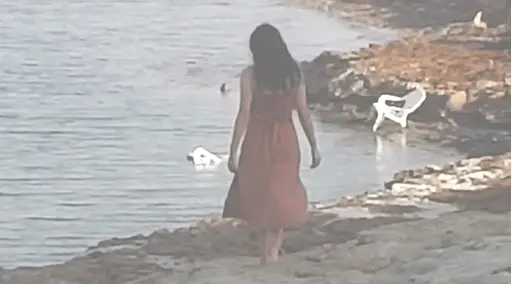
On 28 November 2024, Müge Yılmaz gave her end of residency lecture and launched the first edition of the booklet series "Future Guide for the Salty Forager". Set in 2124, this practical and imaginative foraging guide offers insights on gathering, living with, and consuming salty plants for future readers.
On November 28, Müge Yılmaz gave her end of residency lecture and launched the first edition of the booklet series "Future Guide for the Salty Forager". Besides, we experienced a performative salt-resistant bite by the Brackish Collective. Katía Truijen and Radna Rumping from Loom, practice for cultural transformation, gave their start of residency lecture and introduced their research project "Rhine River Rehearsal – Reimagining a River." Take a look at the video and photos here.
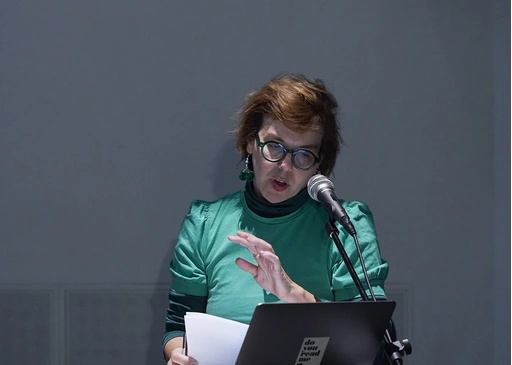
The Gerrit Rietveld Academie congratulates Femke Herregraven on obtaining the title of Creator Doctus (CrD) on 14 November 2024. CrD is a project developed at the Gerrit Rietveld Academie that seeks to realise a new European third cycle award for higher arts education.
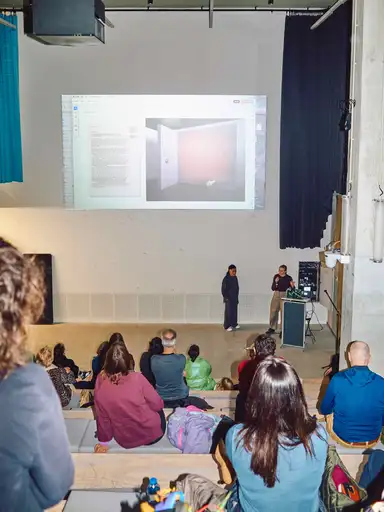
Flavia Dzodan held her inaugural lecture on November 26th on the impossibilities of algorithmic translation. "Amorino Latente/ Latent Cupid” revolves around the translation of art and its emotional impact through algorithmic and computational processes. Take a look at the video & photos of the event.
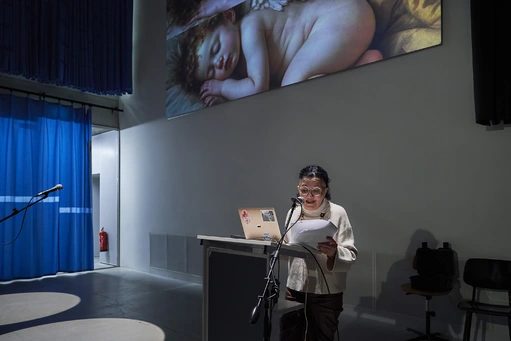
During the symposium and round table discussion on Algorithmic Cultures on the 6th op December 2023, Flavia Dzodan launched her new essay ‘Haptic Mournings; Morning the Never-Made' about our increasing blurring relation to the digital world, the imagined and real.
